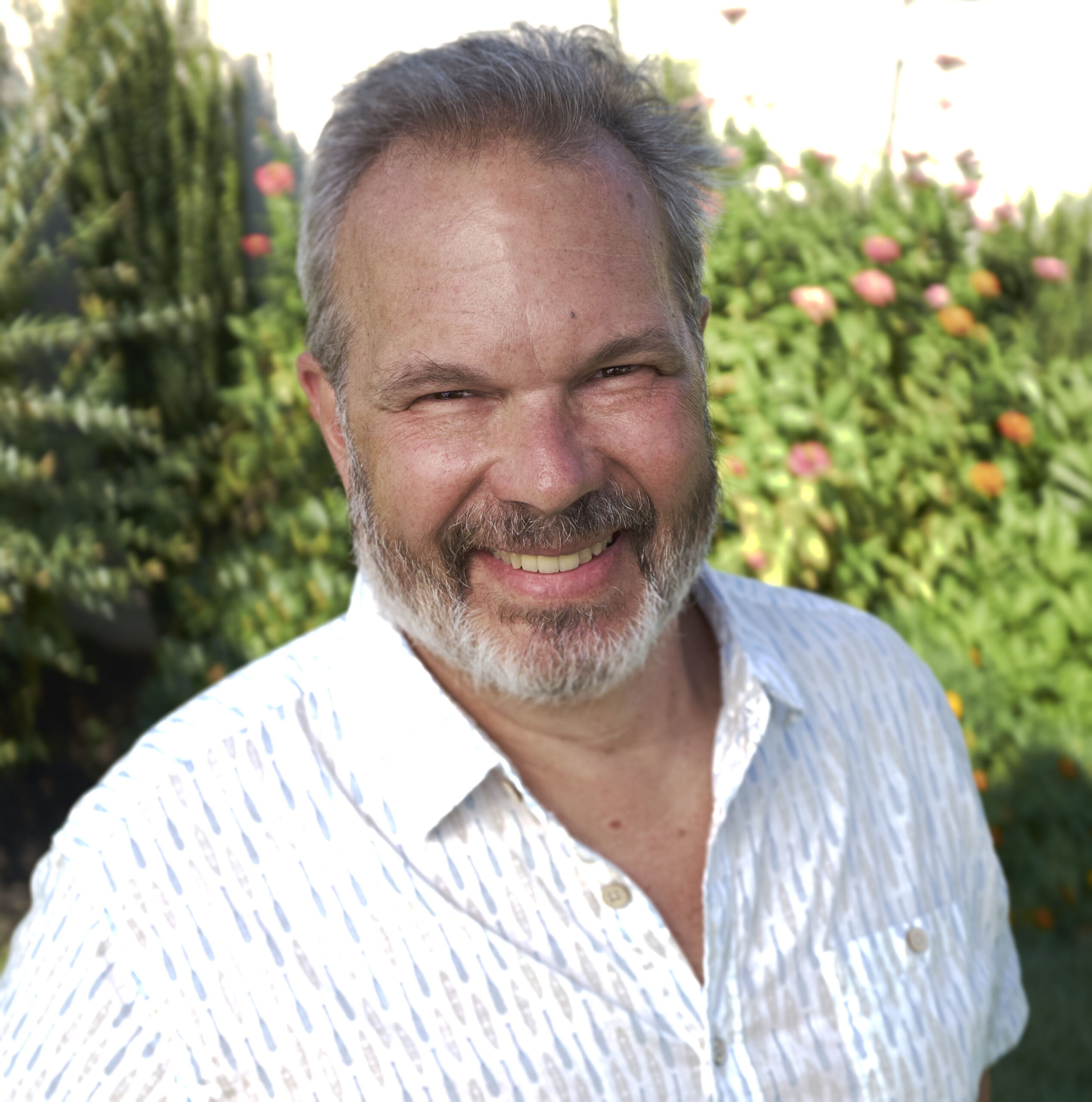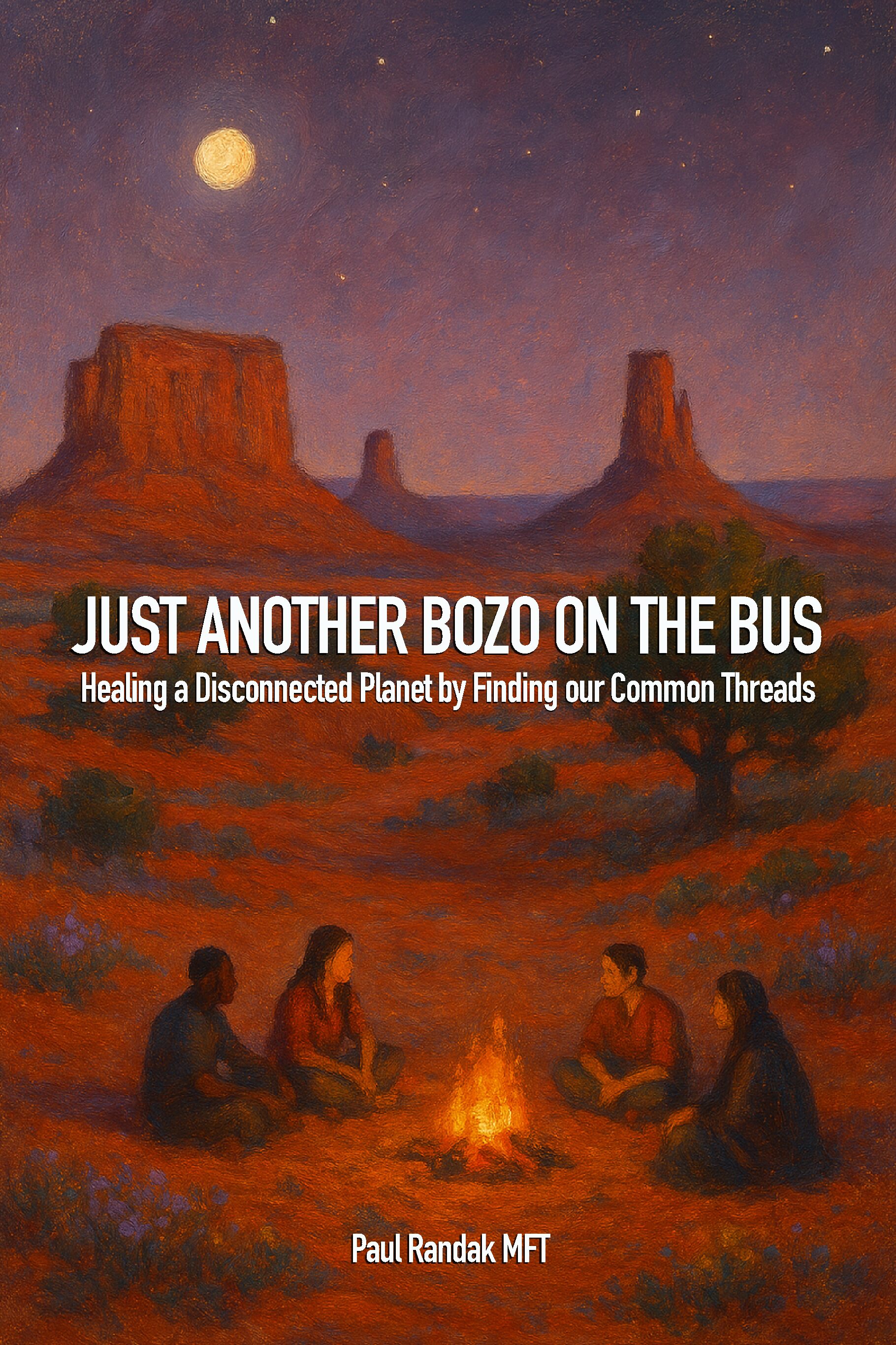


Paul Randak is a marriage and family therapist who lives near Little Cottonwood Canyon in Utah and splits his time between seeing clients in Utah and Oregon. Paul has 26 years of experience in the mental health and addiction treatment field and has been developing and implementing treatment programs for much of that time. Paul has extensive experience in trauma and grief therapy and is well seasoned in EMDR therapy. Paul has facilitated Ketamine Assisted Psychotherapy sessions over the past seven years helping clients develop deeper awareness and understanding of their issues.
Paul has an affinity for a holistic approach combining mental, emotional and spiritual practices to restore health and well being. Paul has facilitated eco-psychology retreats and workshops into the deserts of the Southern Utah. Paul has written books on personal growth and addiction and hosts the illusive podcast “Just Another Bozo on the Bus” that is available on most podcast platforms. He also has taught psychology at local colleges.
Paul has a broad educational experience with a MFT Masters from Northcentral University, a Masters in Transpersonal Psychology from ITP (Sofia University), and a BSW in Social Work along with a Certification in Addiction Counseling from the University of Utah. Paul also has substantial experience and training in Psychedelic Assisted Psychotherapy (PAP).

“Just Another Bozo on the Bus: Healing a Disconnected Planet by Finding our Common Threads” is a holistic self-help book by Paul Randak, MFT, that explores how disconnection lies at the heart of addiction, suffering, and societal division. The title metaphor represents the book’s central philosophy: we’re all fellow travelers on life’s journey, each with our unique struggles but bound by common threads of humanity.
Published in 2025, the book is structured into fourteen interconnected chapters that build a comprehensive framework for personal and collective transformation.
In the introduction, Randak shares his personal journey, describing how his early connection with nature—particularly the ocean—became a sanctuary that taught him about belonging and connection. These formative experiences shaped his understanding of human nature and the fundamental need for authentic connection.
The book’s core premise is that addiction and suffering stem from disconnection—from ourselves, others, and something greater than ourselves. Randak challenges traditional views of addiction as a moral failing or simple disease, reframing it as a symptom of deeper psychological, emotional, and spiritual disconnection. “The opposite of addiction isn’t sobriety,” he argues, “it’s connection.”
Key themes throughout the book include:
The book weaves together neuroscience, psychology, personal anecdotes, client stories, and wisdom traditions to offer a holistic approach to recovery and personal growth. Randak includes practical exercises throughout, making the concepts accessible and applicable.
The final chapter, “The Journey Home,” integrates these themes into a cohesive framework for transformation, emphasizing that healing isn’t about achieving perfection but embracing our shared humanity with all its messiness and marvel.
Throughout, Randak maintains that sustainable wellness emerges through authentic connection, self-compassion, and the courage to be imperfectly human together on our shared journey.
An Apology is a contemporary reimagining of Socratic philosophy told through the intimate correspondence of two cousins, Elisa Chase and Ana Griswald, as they collaborate on writing a play inspired by Plato’s “The Apology of Socrates.”
Elisa, a freelance journalist living in her late mother’s home in Old Saybrook, Connecticut, and Ana, who retreated to a Vermont farmhouse after losing her parents, have maintained a deep bond since childhood. When they decide to write a modern adaptation of Socrates’ defense, their letters become far more than creative collaboration—they evolve into a practice of radical self-examination that transforms both their lives and their work.
The Examined Life as Practice: Rather than a destination to reach, the book presents examined living as an ongoing commitment requiring regular practice, accountability relationships, and community support.
Love and Vulnerability: The deep bond between Elisa and Ana—described as “two halves of the same soul”—demonstrates how authentic relationship requires both the courage to challenge and the tenderness to hold each other through growth.
Shadow Work: As their public work gains recognition, both women must confront what their commitment to examination itself might be protecting them from seeing.
Letter-Writing as Revolution: In an age of instant communication, the deliberate practice of correspondence creates contemplative space for deeper thinking, sustained examination, and genuine transformation.
As Elisa and Ana craft their protagonist Alex Beckett—a philosophy professor facing institutional corruption—their fictional character becomes a mirror for their own courage and compromise. Alex’s journey from questioning to action parallels their own evolution from examining life to living examined.
The book employs an innovative epistolary format where:
By documenting the messy, uncertain process of two women learning to examine their lives—rather than presenting a polished philosophy—the book offers something rare: a model of examined living that includes failure, uncertainty, backsliding, and the ongoing work of becoming. Their “Letter Project” provides readers with adaptable infrastructure for their own practice of self-examination through correspondence.
Ultimately, An Apology is a defense—not of perfection, but of the commitment to keep questioning. Not of having answers, but of developing better questions. Not of transformation as achievement, but as practice. It’s about two women who discover that the unending conversation about how to live well matters more than arriving at final conclusions, and that love—fierce, honest, challenging love—makes that conversation possible.